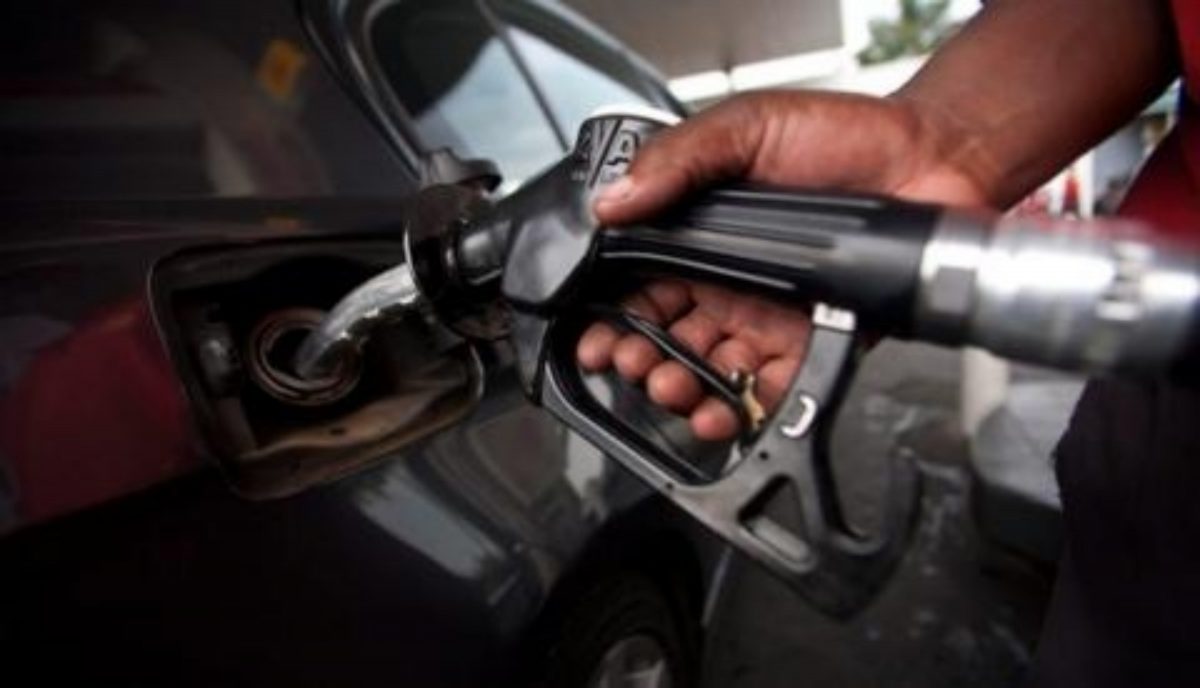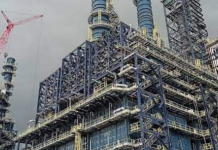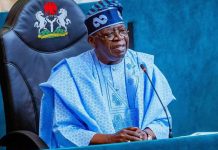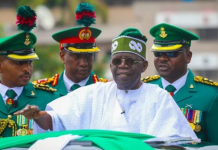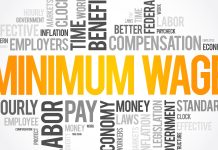By Simon Kolawole
It has now become a tradition for me to analyse the psychology of the Nigerian voter ahead of every general election. Why? I am sitting in my balcony watching people pass by as they argue and pontificate on who will win — or who should win. I hear people argue about merit, power rotation, generational shift, criminal records, pedigrees, spending power, inducement, rigging, structure, debates and other ever-present ingredients in the contest for political power in Nigeria. As far as I can see, these factors will always apply one way or the other in determining the outcome of elections but there are some that are ever constant and we should take time to look at them.
There are certain fundamental assumptions people make at election times that I find interesting but problematic. We always say Nigerians must get their PVCs to vote “the right people” into power. This is a very good and necessary campaign, as I have always said, but the assumption here is that if we troop out to vote, we will elect people who will do well in office. I have my reservations about that. What trooping out to vote provides is that Nigerians will have a say in deciding who will preside over their affairs. The voice and the choice of the majority will prevail. Most eligible voters will have their say and the majority will have their way. That is what a credible election can guarantee.
However, I am not so optimistic that because the majority of voters have voted for a candidate, that means he or she will deliver the goods. Elections, unfortunately, can only determine who has the most support among the candidates and not who is the most competent of them all. We have no way of knowing who will do well. Performance is not determined by campaign poetry or the ability to make an authoritative Powerpoint presentation. Competence is not determined by popular vote. Nowhere in the world is an election guaranteed to elect the best candidate. Rather, elections determine the candidate or the party with the most support. We need to let this fact sink in well.
But here is a caveat: elections offer us the opportunity to revolt with our thumbs. If we vote a candidate into office and the performance is not impressive, we can decide to vote for another one next time. So, while elections do not guarantee a competent winner, they can put the incumbent on notice that “if you fail to do well, we will vote you out”. That is why multiparty democracy is so beautiful. There is in-built incentive for performance — if the votes count. We are not stuck with one candidate. If we vote for another candidate and that one fails too, we vote for another, and another, and another — until we get it right. It could be frustrating at times but is there a better option?
The most important election in Nigeria is, without a doubt, the presidential poll. Although I have argued over and again that for Nigeria to develop, the three tiers of government must be led by competent, patriotic and purposeful leaders, not many Nigerians agree with me. We still think if nothing is working, it is the president that should be blamed. If children are out of school, it is the fault of the president — even though basic education is mostly the responsibility of councils and states. If primary healthcare centres lack drugs and personnel, we have to blame the president. If your street is riddled with potholes, it is the president’s fault. That is how we understand it.
I am not suggesting that the president has no role to play. He plays the key role in driving our development. He controls the levers of economic policies that can make or mar our lives. He is responsible for the security agencies and their failure can ruin our socio-economic lives and make the country one hell of a place. He sits at the head of the table where the biggest slice of the national cake is distributed. He shares the “juicy” federal appointments and contracts in trillions of naira. Governors may be powerful in their domains but the president is powerful over the whole country, even within the constitutional restraints. I, thus, understand the focus on presidential polls.
We are preparing to elect another “powerful” president and things are getting heated up as usual. The campaigns are gradually picking up. We are confronted with 18 choices. I believe four of them will corner over 95 percent of the votes, with the remaining ones settling for the rest. In my opinion, the leading candidates, in no particular order, are: Mr Peter Obi (Labour Party, LP), Senator Rabiu Musa Kwankwaso (New Nigeria Peoples Party, NNPP), Alhaji Atiku Abubakar (Peoples Democratic Party, PDP), and Asiwaju Bola Ahmed Tinubu (All Progressives Congress, APC). Contrary to what many analysts say, I do not think the election will go into a run-off but I expect it to be competitive.
Now, if you were to vote today, what would determine your choice? What would settle the question of whom to vote for? It depends on how you are wired. I have identified and written about the four broad interests that determine how Nigerians vote: one, material; two, ideological; three, primordial; and four, political affinity. Some interests are fluid. The human society is dynamic. The entry of some candidates into the race appears to be altering the landscape, for good or for ill, and that will definitely play a role in the voting patterns. My job today is to make you identify where you belong in these four groups as a voter. You may not be as unbiased as you make people believe.
Are you going to be motivated by “material” interest? We call it “stomach infrastructure”. Many Nigerian voters are basically “unattached”. It is the candidate that brings the rice, vegetable oil and cash that will get their votes. They do not make any pretence about it. I would not think that most voters are in this category because I do not have any data to back up my claim. Since loyal party members also collect “stomach infrastructure” at election times, it would be difficult to reach a scientific conclusion on who voted purely for material gains. More so, some voters will get “stomach infrastructure” from all the candidates and still vote for whom they want. Things are tricky here.
Are you going to be motivated by “ideological” interest? Not every Nigerian believes all politicians are the same. Many voters still hold dearly to the ideals of how a society should run. They still believe that even if no Nigerian politician is “good enough”, some are better than the others. It’s like they see an ocean of candidates and are still able to point out one or two who appear to be more credible, decent and can lead the change that Nigerians so desire. In this group, you also have those who are so desirous of change that they create candidates in the image of a messiah and paint them to be what they are not. You cannot blame them — they just want to live in a better Nigeria.
Are you going to be motivated by “primordial” interest? This covers ethnic, regional or religious emotions. Voters in this group are naturally programmed to choose people who speak their language, or come from their own part of the country, or share their religious beliefs. If they cannot find a strong candidate of their kinfolk on the ballot, they are likely to vote for whoever is “closest” to them — someone likely to serve their interests or who has often identified with them. This is group interest at play. In this election, religious sentiments will be the biggest determinant for the “primordial” voters. However, I think the implications of same-faith ticket will cut both ways.
Are you going to be motivated by “affinity” interest? This is not so much about ethnic or religious affiliation, but historical political alliances and voting patterns. “Historical” does not mean 1914, by the way. It could be as recent as 2019. For voters of this tendency, they have an electoral bond which is not necessarily along the fault lines. They go where their allies or patrons direct them to go. After all, we run a patronage system. Performance is not usually an important factor here, save in exceptional circumstances. I am tempted to say it is the largest voting group in Nigeria but I will not go that far since “political affinity” could be fluid, served by “primordial” and “material” interests.
Indeed, there could be an element of all these interests in every category, just that they could either be dominant or recessive. Therefore, these categories are not mutually exclusive. They can overlap, depending on the political currents per time. Primordial interest and political affinity are often conjoined because they are very emotional in nature. Compare to “stomach infrastructure” and “ideology” which are mostly, if not always, rational choices. The stomach is fluid and based on “survival” for the moment, while ideology is a conviction. Nevertheless, “stomach infrastructure” can fail if voters’ ethnic, regional or religious emotions lie elsewhere. Money cannot easily sway them.
Have you identified where you belong? Or are you a “freelancer” like me? I am not a good example of a Nigerian voter. I have made up my mind that no matter who wins in 2023, or 2027, whenever, no president can transform this country singlehanded. Certain things have to be in place for Nigeria to make significant progress. There are tough and painful decisions to be made about economic reforms, no matter who wins. In my freelance group, we are waiting to engage constructively with whoever Nigerians choose. We will put him on his toes and focus his attention on the matters that matter. I won’t become bitter, abusive and destructive if my preferred candidate does not win.
Kolawole is a Nigerian journalist, public speaker and media entrepreneur. He is the founder and chief executive officer of Cable Newspaper Limited.



